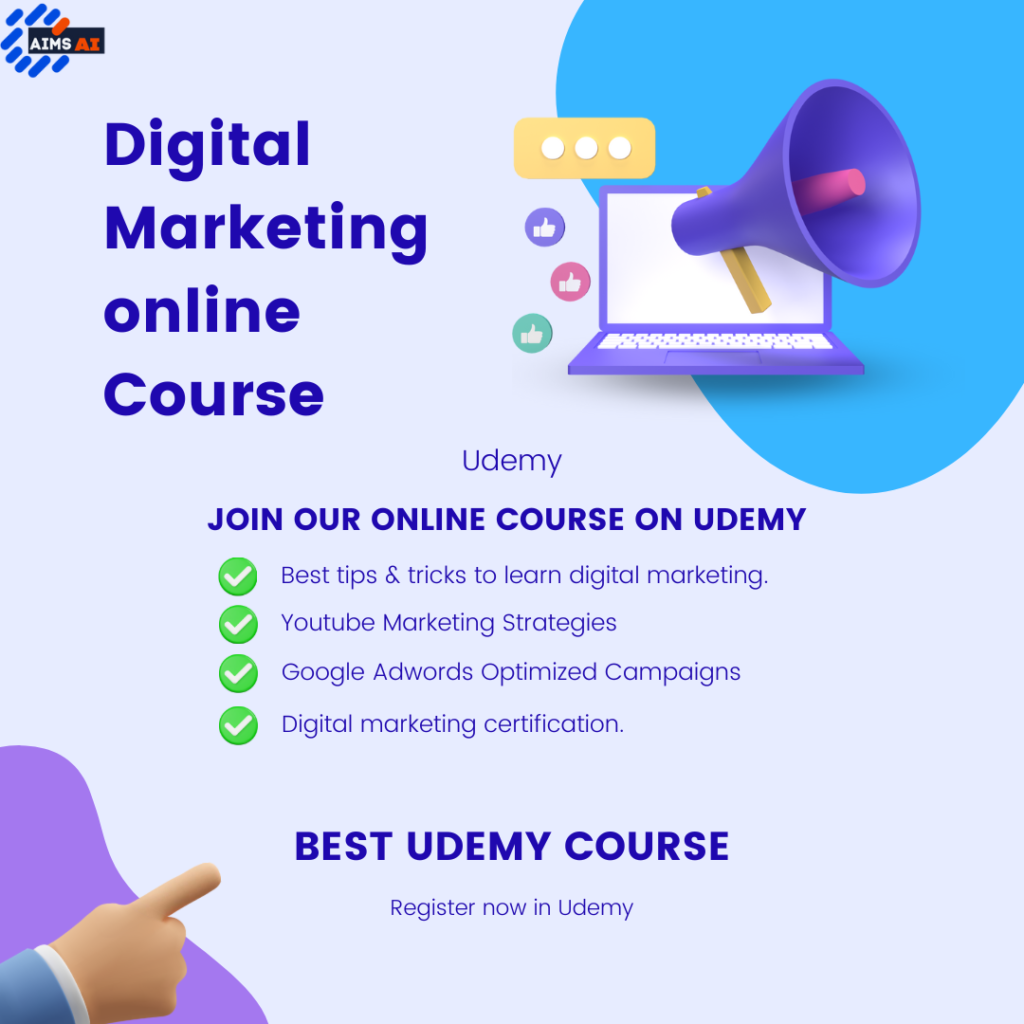Keeping up with the advancements of technology is imperative; without a strong online presence, a business loses its competitive edge. That is why every business must now have a ‘digital footprint’. Digital marketing has become a cornerstone of target marketing tactics in the modern world. What, then, is digital marketing precisely and how does it function?
We will take you through the basic concepts and elements of digital marketing, its necessity for every business, and how it works.
What is Digital Marketing?
For the purposes of this article, we will define it as any marketing done using the internet, along with other digital tools and techniques, unlike ‘offline’ marketing which involves the use of print media, television and radio.
Key Components of Digital Marketing
Digital marketing incorporates various online and social media marketing strategies such as:
Search Engine Optimization (SEO) – This is making a website more visible on Google and other search engines.
Pay-Per-Click Advertising (PPC) – This includes ads that are shown on Google Ads and Facebook Ads at a fee.
Content Marketing is comprised of blogs, videos, infographics, among others, designed to attract and engage a targeted audience.
Social Media Marketing (SMM) pertains to advertising and selling a brand through social media platforms like Facebook, Instagram, Twitter and LinkedIn.
Email Marketing refers to the practice of initiating commercial contact with identified and qualified users through sending emails in order to convert them into customers.
Affiliate Marketing: Involves using an affiliate to market the business’s products for a fee.
Influencer Marketing: Collaborating with influencers to access and market to new audiences.
Conversion Rate Optimization (CRO) – Enhancing a brand’s website and content with the intent of improving sales and engagement with other marketing objectives.
What is the process of digital marketing?
1. Comprehending the Target Market
Selecting the proper audience is perhaps one of the most difficult tasks in digital marketing. Organizations conduct research on people’s interests, demographics, and their online activities in order to design buyer personas corresponding to their targeted market.
2. Creation of a Digital Marketing Strategy
With the audience now defined, marketers are now developing a digital marketing strategy that incorporates:
✅ Choice of methods (social networks, e-mail newsletters, PPC, SEO, etc.)
✅ Setting goals (lead generation, brand recognition, selling, customer loyalty, etc.)
✅ Determining key performance indicators (KPI) that define success
3. Growing the Business through Achieved SEO Accomplishments.
No digital marketing campaign is complete without SEO. This includes:
Researching keywords: The search for pertinent phrases utilizing Google Keyword Planner and Ahrefs.
On-page SEO: Writing site content and optimizing the site’s meta tags, headings, and images.
Off-page SEO: Gaining links from other authoritative websites.
Technical SEO: Improving the website’s load time, mobile optimization, and overall site crawlability.
4. Implementing Paid Ads (PPC)
Businesses can acquire business visibility organically when they utilize paid advertisements through PPC advertising. Facebook Ads and Google Ads are suitable for specific audiences because they use: Demographic Data (such as location, age, and gender) Keywords (like ‘best digital marketing services’) People’s Behaviors and Interests
5. Blogging and Content Marketing
A marketer must consider Content marketing as a long-term approach which includes: ✔️ Creation of blog articles to increase rankings on search engines, thus being SEO-friendly ✔️ Use case studies accompanied by videos and infographics to engage the audience ✔️ Improve brand perception by entertaining and educating the audience
6. Recognition of Brands Using Social Media
Brands are able to: Promote their products and services using advertisements People Engage their customers through posts, Stories, and live videos on platforms such as instagram, facebook, LinkedIn, Twitter \& TikTok Work with social media influencers for brand advertising
7. Nurtured Loved Clients Via E-Mail Marketing
Converting leads into clients is most effectively done using email marketing where companies send: Newsletters with useful content Exclusive deals And product suggestions for the user
8. Tracking Performance Analytics
To evaluate how effective a specific dzigital strategy is, entrepreneurs utilize the following analytic tools:
Website traffic and user activities with google analytics.
Website rank and the performed searches on google search console.
User engagements on social media with the combination of Facebook and Instagram Insights.
Progress of SEO and keyword ranking with SEMrush and Ahrefs.
Why Is Digital Marketing So Important?
Less Costly Compared To Other Means
Advertising with television, radio, and printed media is more expensive in comparison to digital marketing.
Enhanced Coverage and Involvement
Business can adopt focused marketing strategies and reach potential customers globally 24/7.
Better Returns From Marketing
Marketing that is carried out based on relevant information enables businesses to monitor impacts while adjusting their further steps to maximize the ROI.
Specific Marketing
Modern tools enable brands to market specifically targeted advertisement messages to the individual users that they wish to get to.
Relationship With Competition
Organizations that apply digital marketing strategies are more competitive than those that seem to rely solely on the old fashion styles.
Conclusion
In modern marketing, building a brand and increasing its clientele and sales requires digital marketing application. A brand can reach its clients using SEO, PPC, content marketing, social media marketing, and email marketing.
For learners starting to get into digital marketing, it is best to start with:
✅ Understanding the audience
✅ Creating value and helpful content
✅ Practicing search engine optimization
✅ Performing proper Data Analysis Marketing
Let me know in the comments if you would want me to help you with SEO and the other digital marketing techniques. 🚀

